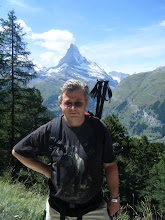A racing certainty
A Facebook posting by a friend of mine led me to a video of
comedian David Mitchell making the case for climate change. He argues that,
unless the sceptics can prove climate change won’t happen, then, even if the
odds that it will happen are small, it is incumbent on us to do something about
it, especially given that the consequences will be that the planet becomes
uninhabitable.
There are a couple of flaws in this argument, as some of the
comments on his posting point out. Firstly, the statement that the planet will
become uninhabitable is probably an overstatement – more about that later. More
importantly, the argument ignores the question of balance of risk. Our children
face many lethal hazards when they leave home every day but we don’t lock them
up because the low odds of them coming to harm are outweighed by the positive
benefits – in terms of school, recreation and so on. The risk/ gain ration
would be massively altered if there was a flood or a nuclear accident but, in
normal circumstances, the balance is in favour of letting them out, terrible
and all as the prospect of them coming to harm might be.
The biggest reason, though, why this argument is flawed is
that the odds of climate change coming to pass are not, in fact, low. Rather,
climate change is a racing certainty and the sceptics are simply in denial.
And, while it may not make the planet uninhabitable (though that is not an
impossibility), it will certainly make large parts of it inhospitable, with
huge political and socio-economic consequences. Moreover, it could easily lead
to societal collapse of the kind seen in Europe after the fall of the Roman
Empire or the collapse of the Khmer empire in Cambodia.
What is frightening too about such societal collapse is
that, where it has happened in the past, it has often been relatively sudden.
It is not typically a gradual process but can come bout in much less time than
the life span of an average human being. Now, with society so globally
interconnected, such a collapse would be global, rather than regional as
previous ones were. The consequences would be mass poverty, high rates of
illness and mortality, and increased levels of human conflict.
Those in denial (sceptics is too kind a word) cling to
points of detail where there is still uncertainty – just as those who deny
evolution point to the relatively inconsequential points of detail where we now
know that Darwin got it wrong. In this regard, the believers in climate change
need to be careful not to “talk it up” and not to ascribe every weather
abnormality to it. It is far too soon to say, for instance, whether the
shortage of snow on Switzerland’s ski slopes last winter was due to climate
change or was just a fluke.
However, David Mitchell also has another post that is a much
better – and more honest – treatment of the issue. He says that the advocates
of climate change have a much less appealing message to sell. Who wants to hear
“Eat less meat, recycle more, drive a smaller car, travel less by air” when, as
Mitchell puts it, Jeremy Clarkson is saying “Let’s drive to the North Pole in a
4 x 4 while drinking gin”. I know I don’t. It’s much easier to believe that climate
change isn’t going to happen, just as those who argue that the third world
should sort itself out always fing plenty of people to agree with them.
Still, just as the salad (boring!) is better for my health than the 10
oz steak (yum!), the litre of beer (yum!) or the wedge of chocolate cake (yum!), so in the case of climate change the
unpleasant message is the correct one. I am just not sure that, as humans, we
are capable of grasping this. I shudder to think what will happen if we don’t.


0 Comments:
Post a Comment
Subscribe to Post Comments [Atom]
<< Home